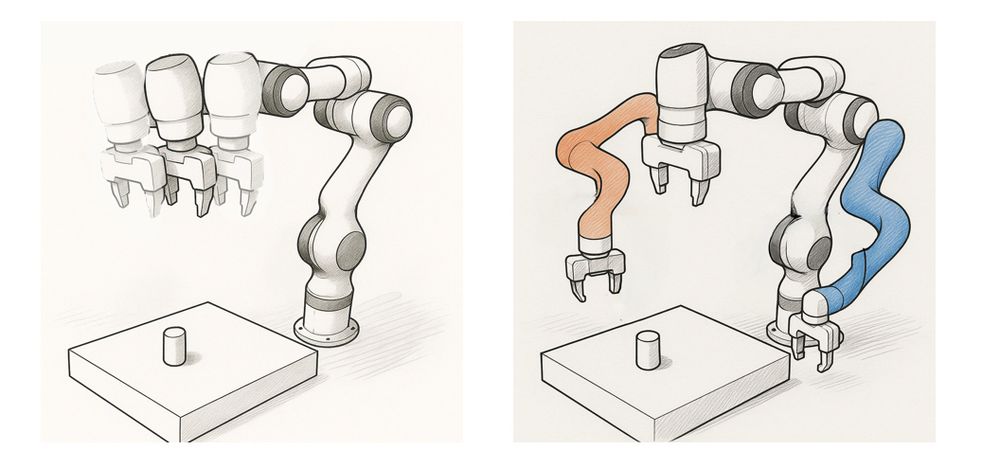Mirco Mutti
@mircomutti.bsky.social
1.4K followers
300 following
31 posts
Reinforcement learning, but without rewards.
Postdoc at the Technion. PhD from Politecnico di Milano.
https://muttimirco.github.io
Posts
Media
Videos
Starter Packs
Reposted by Mirco Mutti
Mirco Mutti
@mircomutti.bsky.social
· Jul 29
Mirco Mutti
@mircomutti.bsky.social
· Jul 24
Mirco Mutti
@mircomutti.bsky.social
· Jul 24
Mirco Mutti
@mircomutti.bsky.social
· Jul 24
Mirco Mutti
@mircomutti.bsky.social
· Jul 24
Mirco Mutti
@mircomutti.bsky.social
· Jul 24
Mirco Mutti
@mircomutti.bsky.social
· Jul 24
Mirco Mutti
@mircomutti.bsky.social
· Jul 24
Mirco Mutti
@mircomutti.bsky.social
· Jul 24
Mirco Mutti
@mircomutti.bsky.social
· Jul 15

A Classification View on Meta Learning Bandits
Contextual multi-armed bandits are a popular choice to model sequential decision-making. E.g., in a healthcare application we may perform various tests to asses a patient condition (exploration) and t...
arxiv.org
Mirco Mutti
@mircomutti.bsky.social
· Jul 15
Mirco Mutti
@mircomutti.bsky.social
· Jul 15
Mirco Mutti
@mircomutti.bsky.social
· Jul 15
Mirco Mutti
@mircomutti.bsky.social
· Jul 15
Mirco Mutti
@mircomutti.bsky.social
· Jul 15
Mirco Mutti
@mircomutti.bsky.social
· Jul 15
Reposted by Mirco Mutti
Reposted by Mirco Mutti
Gautam Kamath
@gautamkamath.com
· Jul 7
Mirco Mutti
@mircomutti.bsky.social
· May 3
Mirco Mutti
@mircomutti.bsky.social
· May 3
Reposted by Mirco Mutti
Reposted by Mirco Mutti
Tim van Erven
@timvanerven.nl
· Apr 8



